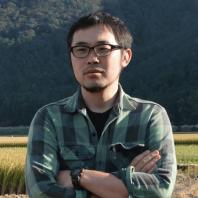![]()
![]()
Research Support Office Research Advancement Division. Tokyo University of Agriculture and Technology
| TEL | +81-42-367-5944 |
|---|---|
| FAX | +81-42-367-5946 |
This program is supported by MEXT’s scientific technology human resource development fee grant, "Program to Disseminate Tenure Tracking System".
Home > Tenured Faculties > Sugihara Soh

Sugihara Soh

| Affiliation | Institute of Agriculture |
|---|---|
| Division | Division of Biological Production |
| Research field | Soil Science |
| Keyword(S) | Nutirent dynamics, Sustainalbe land management, Soil fertility |
| Url | https://sites.google.com/site/sugihara0901/ |
| Research experience | ・2008-2010: JSPS research fellow (DC2) |
|---|---|
| Educational background | ・2004: BSc in Agriculture, Kyoto University, Japan |
| Awards | * The latest information is shown at the member's website. |
| Selected papers and publications | * The latest information is shown at the member's website. |
Soil play an important role for food production and natural environment. However, there had been limited attention for “Soil resources” for sustainable management. According to Millennium Ecosystem Assessment, soil provide the Supporting services for Food provisioning, Regulating the climate change, and Cultural aesthetic, and so on. To maintain the Ecosystems and Human well-being for the millennium, we must understand the soil itself more.
In this context, I studies the Soil Science, in order to conserve and utilize the soil resource more effectively, especially in Sub Saharan Africa (SSA). To solve the food shortage in Sub-Saharan Africa, I performed continuous cultivation experiments since 2006 in Tanzania, and the following results were obtained from the effect of land management on soil-plant nitrogen (N): 1) critical N leaching was occurred (ca. 60 kg N ha-1 yr-1), causing the low crop yields, 2) soil microbial biomass (SMB) contain much N as biomass at the early growth stage of crop and decreased at the late growth stage, and 3) reduced SMB contribute significantly to the crop growth stages as N source (ca. 20 kg N ha-1 yr-1). This study seeks to expand on these results. At the next step, I developed new technique of crop residue application to improve the N use efficiency as follows: 1) the application of plant residue before planting can increase SMB, resulting in much N, which is generally leached, is absorbed by SMB, 2) the increased SMB during the early crop growth period decreased the leached N, and also increased the N supply by SMB (ca. 200~250%) during the late crop growth period, and 3) it increased the crop growth (ca. 120 %) (Sugihara et al., 2010a, 2010b, 2012b). Furthermore, to utilize the recalcitrant soil P, which can not use for plant generally, I performed the new research and used White lupin (Lupinus albus), which can specially absorb recalcitrant soil P more than the other plants. At present, my result indicated that White Lupin can specially absorb the recalcitrant soil P associated with oxide Al/Fe in Tanzanian croplands, compared with other leguminous plants (Sugihara et al., In press).
As explained above, I mainly focus on nutrient dynamics in various agroecosystems (Tanzania, Cameroon, Thailand, India, Cambodia, and Japan), in relation to soil chemical characteristics, and suggest the sustainable land management.
This tenure-track program allows us to spend enough time on our own research, by reducing the coursework and some operations in university. Comparing with other coeval researcher in different institute or university, this program provide the special research environment, including room, fund, and human support. I really appreciate this position with warm encouragements and supports from mentors and other professors. Although the many task is there, but it must be solved with intensified effort for the fascinating research.
All I have to do is “Research with good quality”. To achieve this object, it is necessary to create a good cycle; (1) facilitate the laboratory environment and get the research fund, (2) Study as usual (this is very easy), and (3) publish the results not only by journal papers but also by a service to society. To step the above cycle with fluency, the cooperation of laboratory staff and student must be necessary. Then, I would like to make the vigorous research team with some strict rule and deep affection.